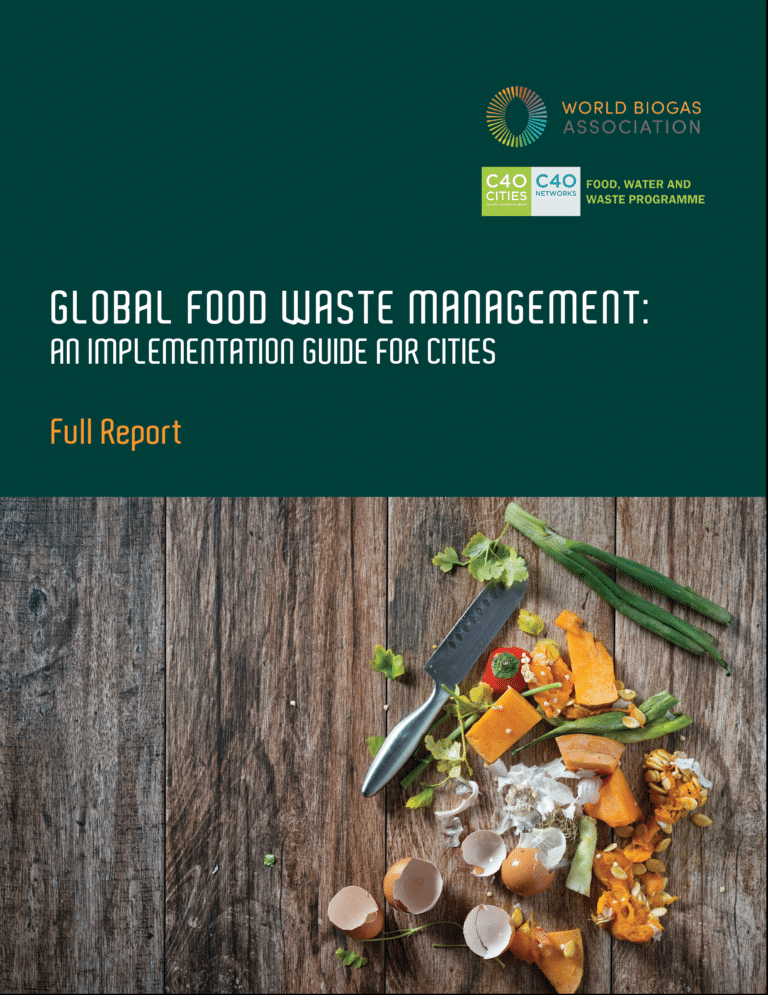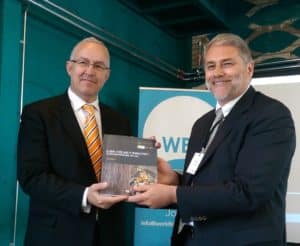
Global Food Waste Management: an Implementation Guide for Cities
New landmark report from WBA
The World Biogas Association (WBA), in partnership with the C40 Cities Climate Leadership Group Food, Water and Waste Programme, has published a landmark report on urban food waste, its environmental impact, and the benefits of separately collecting it, treating it and recycling it through anaerobic digestion. The report also features a how-to section to assist municipalities wishing to improve their food waste management.
Global Food Waste Management: An Implementation Guide for Cities

Globally, about one third of all food produced is lost or wasted along the management chain, contributing to greenhouse gas emissions and other environmental issues, wasting tremendous resources in the production processes, and making recyclable materials in the waste stream harder to recover. As the human population urbanises and grows, cities have an opportunity to build on experiences from around the world to reduce their food waste footprint, recover nutrients from food waste, reduce greenhouse gas emissions through renewable energy generation and improve their overall waste management systems.
Global Food Waste Management – An Implementation Guide for Cities sets out:
– the experiences of cities around the world in coming to terms with their food waste;
– the best practices for preventing and reducing food waste;
– an overview of collection systems to ensure clean food waste is brought to treatment;
– food waste treatment alternatives, from windrow composting to anaerobic digestion;
– the use of outputs from the various treatment processes and how to best valorise them;
– the policies needed to ensure food waste is sustainably managed.
The report was unveiled and presented to the Major of Rotterdam on 16th May 2018 – see more details below.
The report in the media
UK AD and World Biogas Expo 2018
UK AD AND WORLD BIOGAS EXPO 2018 will also feature the report in its main conference, as well as offering a series of workshops, seminars and some of the best case studies from around the world to allow participants to discuss the findings of the report, and to get advice on implementing its recommendations.

